Immortal Beloved
Immortal Beloved : Movie Review
4 stars out of 5 (Excellent)
Director : Bernard Rose
English, 1994
Director Ludwig Van B. stands unvanquished as one of the most magnificently tortured artists to grace the modern era. As a musical prodigy, his independent heart soon ran into conflict with his abusive father. His relations with women afforded more thorns than roses. Deafness and tinnitus afflicted him in early life, depriving him of his dearest faculty and deranging his already fragile temperament. And his ward, driven to the point of suicide, failed to live up to Beethoven’s tireless coaching and sky-high expectations. Regret and inadequate finances rounded out his ending years. But as an elite artist struck down by tragedy, he was not entirely alone in fate. His coeval - John Keats - was stopped short of expanding on his wondrous poetry as he struggled to contend with two major scoundrels - he would have survived unrequited love but he succumbed to that dastardly villain much more common in bygone centuries - consumption. For some chosen people, it seems, Life is determined to accord their full share of tough love - it reckons that only they can take it and no one else.
Immortal Beloved, written and directed by Bernard Rose, is an elegantly detailed cine-story of the roil in the great composer’s life. It may not be entirely accurate factually, but it has enough power and perspective to delineate the the man, jerk and giant that its protagonist was. Pic opens with the deeply restful voice of a commentator whose words are a love letter to the maestro - "What he was...was only through his music" "The thorns of life had wounded him deeply, so he held fast to his art, even when the gate through which it entered had shut".
That early scene is filled with surges of people milling around Beethoven’s coffin - it floats above the multitudes like a supreme bar of music that glides deathless through the ages. Things then descend to the earthly matters of haggling over inheritance. Beethoven’s surviving brother lays claim to the estate, but Ludwig - the incorrigible Romeo that he was - has silently drawn up a will that bequeaths his all to his "Immortal Beloved". The maestro’s faithful secretary - Anton Schindler - makes out a list and launches out to find who was the eternal darling of his boss’s heart. He comes into contact and discussion with the countess Giulietta Guicciardi (played by the delicate Valerie Golino with her usual qualities of petite delight and young seductive appeal) She tells him the history of Ludwig’s impartiality in having virile dalliances with various beauties, her included.
Focus then shifts to the widowed but still amply splendoured character played by Isabella Rossellini . With warm charm and grace under fire, she portrays another aristocrat - Anna Marie Erdody. Beethoven lets her too strum intimately on his heart-strings. She genuinely cares for him - at his moment of greatest public humiliation and ridicule (she has not yet been personally acquainted with him at that juncture) she walks up and stands beside him holding his hand and leads him into respite.
But the mystery is still not solved. Affairs move from romantic ones to familial strife - Beethoven is incensed over the supposed fact that his brother has chosen a woman of loose morals - Johanna Reiss (enacted by a similarly named actress with impressive equanimity). His worst excesses erupt when he repeatedly lashes out at her - that entire track has its own sado-masochistic undertow. He later wrangles the guardianship of their son for whom he feels great affection, and drives the boy into performing as a top pianist. Humour is neatly integrated into the narrative as the relentlessly harrassed boy laments about his old guardian’s disintegrating mind - "He bawls a stupid childish tune at the top of his lungs!" Little does the boy know that the tune he imitates in asinine registers of "na na na..." will go on get etched as the legendary Ninth Symphony.
To do justice to Beethoven, it may be said that he was not a perpetual rogue.He valued liberal ideals and felt that Napolean would be a benevolent ruler, but when the latter proved to be just a thug with immense annexing ability, Beethoven viciously scratches out his name from the composition he initially made in Napolean’s honour. Later, despite belated realization that his ward will not fulfill his guardian’s hopes, he still cherishes the prospect of giving company and care to the boy. And he makes a special effort to reach out to comfort Anna Marie when her life has reached its deepest sorrow...
This a beautifully photographed film - the elegance of Vienna and vicinity in its heyday is smoothly captured. Dynamic shots too are filmed with equal flow, as in the scene where the the lens moves in parallel with the course of a carriage thundering through a stormy night. The movie’s run-time of 115 minutes always reins in interest by keen editing. Acting is consistently excellent and it is another pleasure to note eclectic European accents all expressing their feelings in articulate English. Gary Oldman’s performance is a subtle triumph - instead of the role coming to us, we have to go towards its delicate cadences. By the time we are introduced to this character, his hearing loss has already set in, and we see that this man is fighting irritation every minute. On one ocasion, when face-contorting anger has become too commonplace an option, his face remains a barely stirring mask when he utters the foulest words to his joyous brother. On another, when aggravation has become intolerable, he slowly reclines, his expression relaxing wonderfully as he eases himself into a self-imagined pool of music.
I have also seen the more feted, Oscar-winning "Amadeus" based on the life of Wolfgang A. Mozart, and feel that "Immortal Beloved" is comfortably equal to it, if not better. Of all the period-dramas centering on one man’s life that I have watched , this one does not quite reach the dizzying heights ascended to by Kubrick’s "Barry Lyndon". But never mind - compared to cinema’s million minor mercies, this movie qualifies as a major artistic solace.
Memorable scenes lift the film strategically. After long indolence, when he is coaxed into playing the piano in a house which he is assured, is deserted, Ludwig gently rests his face on the piano top, in complete peace while unwatched fingers weave their magic. The hiding Giuletta watches on - she retreats when the first few notes are pounded like savage thrusts, but then she is magnetically drawn towards walking up to him when the succeeding notes flow like perfectly designed caresses.
Then there is the sequence which records a boy's wild liberating sprint throught the forest and its transcendent culmination in a lake. The visual metaphor in that ending shot is a supremely exquisite one which could have easily have been placed as the knock-out coda of this film. And the last big montage is another inspired one which has been simply transposed from real life - as the Ninth Symphony hurtles towards its crescendo, the maestro mounts the stage, with a mane of white hair, quivering mouth and marble eyes staring skyward at the chequered firmament of his life. His eyes mist over because he hears no applause of the audience. The conductor turns him around to face the entire grand theatre which has stood up in unanimous ovation. He watches.. and then bows. Compared to his other performances in real life, Beethoven did not not receive much money from that concert, but this scene's finale helps in understanding why money is not everything in life.
The one who is truly immortal knew that this genius should be given a beloved of lasting beauty. He could have been given the woman of his desires, in whom he could he could feel the pride of possession, for whom he could nurture his fondness, to whom he could make love. But he was instead gifted the talent to make music. To not just make music but also to let its notes blossom with such dazzling emotion that it would inspire a thousand other romances. It would be a beauty whose features would not wither with time. Yes, he did grievously hurt people in his lifetime - that was perhaps in sardonic knowledge of the fact that he would anyway pleasure posterity.
For H.W
UPN
UPNWORLD welcomes your comments

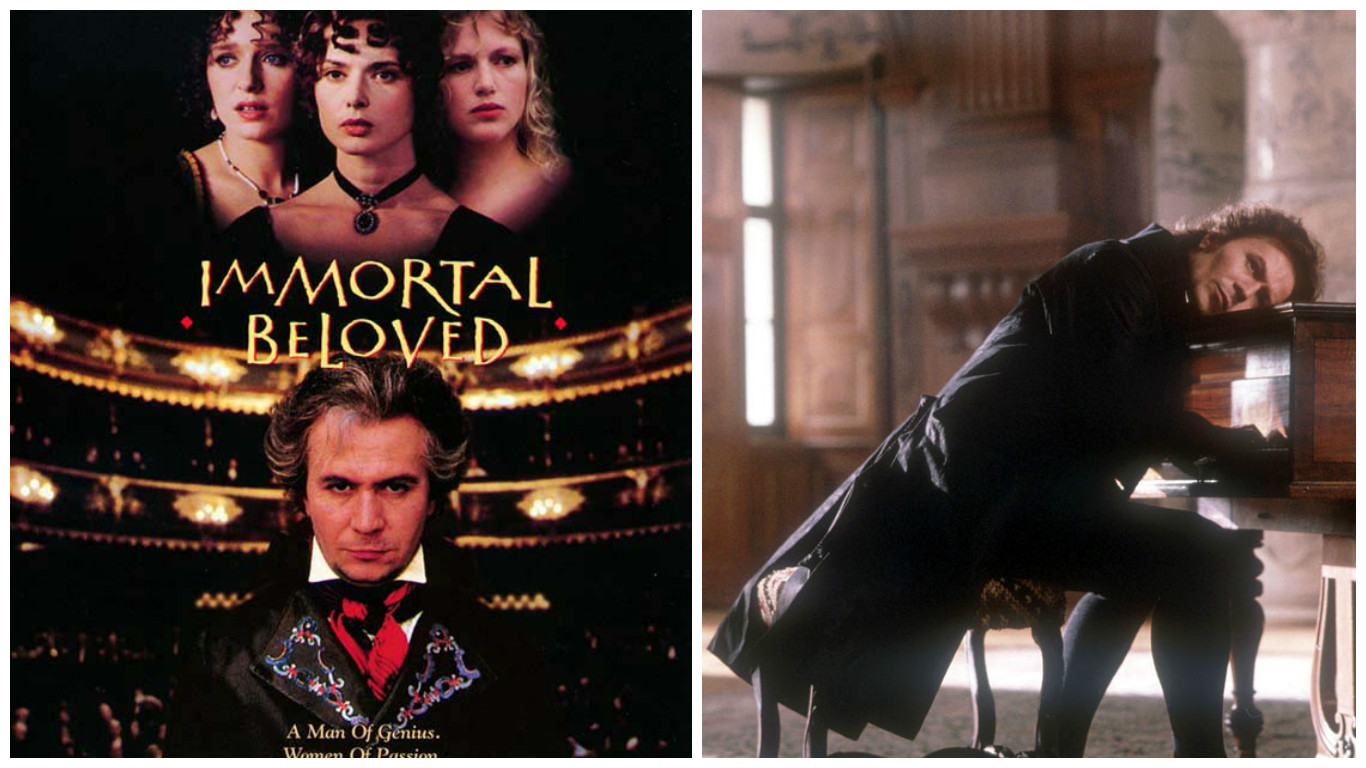
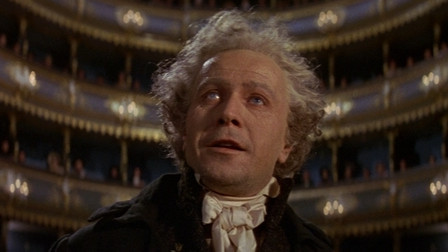
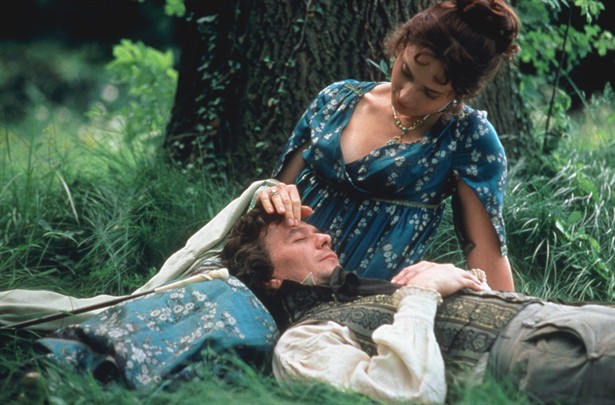
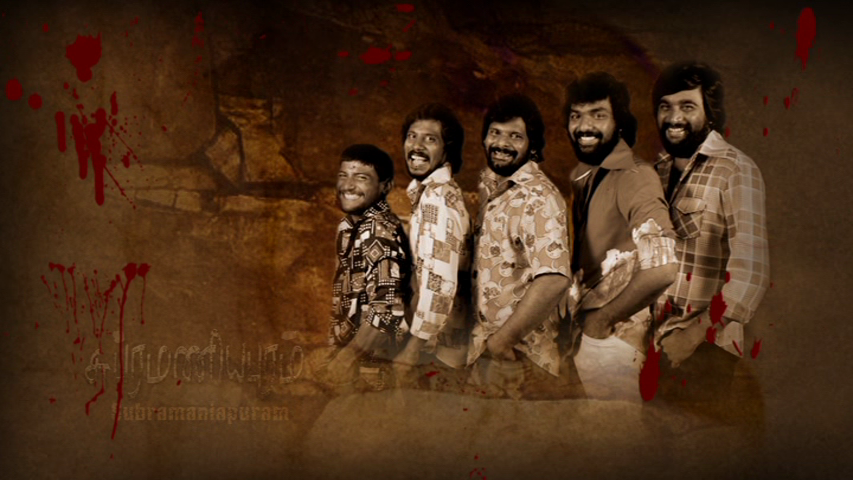

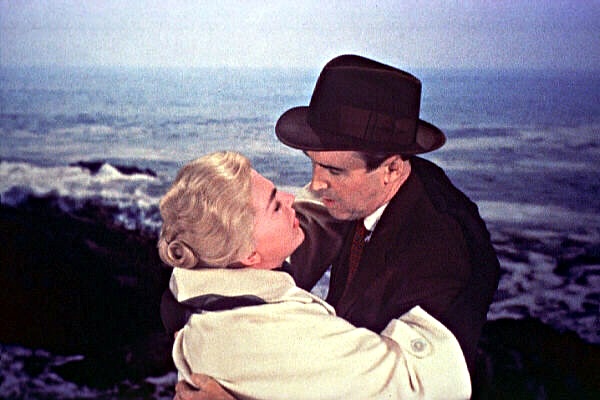





0 COMMENTS
WRITE COMMENT